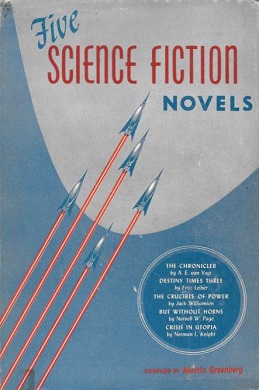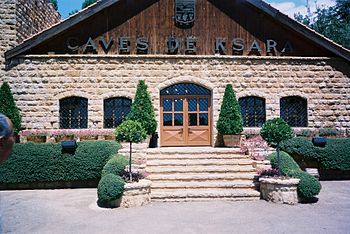Birdkill written, I needed a cover image for the book. The title was simple enough, the original short story was called 'Martin', but having made such a mess of my previous book titles (Note to authors: naming your book after a popular food category means a lifetime of SEO fail) I wanted to get this one right. A brief flirtation with 'The boy who killed birds' ended in 'Birdkill'.
I started a-Googlin' for cover images (without any real idea in mind) and soon enough stumbled upon Mary Jo Hoffman's 'STILL Blog', where her image of a lifeless Fox Sparrow was to be found: the perfect cover image. I can't remember what search string got the result, but have a sneaky suspicion it was something fiendishly complicated like 'dead sparrow'...
A quick email exchange later, said image was licensed to me, a process I had been through before with the 'Pill skull' cover image of
Shemlan - A Deadly Tragedy, which I licensed from Australian artist and borderline head case Gerrard King.
Mary Jo's work is starting to gain the mainstream recognition it deserves, having build a solid wee following on instagram (@maryjohoffman) and with visitors to the STILL Blog itself. A number of people and companies, including major US retailers now, have started licensing her images.
The idea behind STILL is simple enough. Formerly an aerospace engineer, Mary Jo stepped out of the world of fast-moving corporate careers to have kids and enjoy a somewhat more bucolic lifestyle. These days she takes her Puggle, Jack, for a walk every day and forages in the pretty countryside around her rather stylish home in Saint Paul, Minnesota. She takes the results home and adds them to her collection of things, arranging these natural finds and taking a daily snap for her blog. She'll occasionally pull in objects from further afield as the family roams. She's got a great eye and creates images of abiding perfection: daily moments that truly give you a sense of stillness.

Sometimes it'll be a single object, sometimes a painstakingly arranged array artistically and beautifully laid out to produce an effect or tell a little visual joke. Her images provide a moment of contemplation each day, sometimes seasonal and sometimes vibrant, lively and filled with freshness. Warm autumn, stark winter and all year round, every now and then, a little death. They're all photographed using natural light.
Like many things that have happened to me on this book journey, the STILL connection has given me a fascinating new insight into something I hadn't known was there before.
I caught up with Mary Jo and grilled her lightly with a little salt and pepper and olive oil about the STILL project and her life in images...
You transitioned from being an aerospace engineer at Honeywell to a stay-at-home mum. How?
I did indeed. I worked in as an aerospace research engineer for 15 years. My area of expertise was flight controls (aka autopilots). By the time I left, I was Director of Research with offices in Minneapolis, Prague, China, and Phoenix.
I loved the work, but the job required too much travel, and was seriously getting in the way of our ability to have children. I was told, in so many words, “Right now, you’re married to your husband. When you take your next promotion, you will be married to the company.” Then, as if on cue, the beloved and virtuous company I had worked for up to that point was bought out by a large, uninteresting, and mostly uncaring corporate conglomerate. So, before it was too late, I quit.
My husband and I essentially tag teamed. I had been the primary bread-winner, and he had always been part time, and now we switched roles. It has been 13 years since then, and we have two incredible kids. I don’t regret the choice often, but I sometimes miss all those smart guys I used to work alongside. Fortunately my husband is not only my best friend but also the smartest guy I know, so I am content hanging with him and the kids as long as they are willing to hang out with me.
Would you describe your life and surroundings as idyllic?
The word “idyllic" makes me uncomfortable, because it implies a kind of ideal. I don’t think of our life as ideal. I think of my life as a combination of happy, earned, and fortunate. In summary, I am happily married to a guy I am crazy about, and have been for 25 years. Together we made two pretty remarkable kids. When we were young and in love, and I was making a good income as an aerospace engineer, we continued to live like college students because we simply didn’t want for more. So we saved much of that professional salary for over a decade. That financial security has given us lifestyle flexibility today that we could not have imagined in our 20s. It was one of the smartest things we ever did.
On the flipside, and there is always a flipside, I have a hereditary autoimmune disease called
Sjögren's syndrome. Today it is mostly a nuisance, but it could get ugly at any time. When I was young, I was a tomboy and athlete, but today a good six kilometre walk is about as much as I can reasonably do. So those two things: a hint of financial security and a nagging sense of time as precious and finite, have led us to be more deliberate about our lifestyle than most of our peers.
My surroundings, however, I just found out, are very nearly idyllic. I recently learned from
Dennis Dutton's TED Talk that there is such thing as a universally idyllic landscape shared by all cultures around the globe.
He describes this universal archetypal landscape as follows:
"People in very different cultures all over the world tend to like a particular kind of landscape, a landscape that just happens to be similar to the Pleistocene savannas where we evolved. It's a kind of Hudson River school landscape featuring open spaces of low grasses interspersed with copses of trees. The trees, by the way, are often preferred if they fork near the ground, that is to say, if they're trees you could scramble up if you were in a tight fix. The landscape shows the presence of water directly in view, or evidence of water in a bluish distance, indications of animal or bird life as well as diverse greenery. And finally -- get this -- a path or a road, perhaps a riverbank or a shoreline, that extends into the distance, almost inviting you to follow it. This landscape type is regarded as beautiful, even by people in countries that don't have it. The ideal savanna landscape is one of the clearest examples where human beings everywhere find beauty in similar visual experience.”
This just happens to describe the land around our home in every way, right down to the copses of trees that fork at the base, lush greenery, abundant wildlife, and a path through the cat-tails out to a bluish lake in the distance. So, somewhere in my amygdala, I must have known this when we bought our home ten years ago. This setting has been a huge source of my inspiration.
There's a transcendent quality to the images you post daily on the STILL Blog and a tremendous sense of peace. Does that reflect your own peace or are you a howling maelstrom of conflict and terrifying possibility underneath?
While it would sound much more interesting to hint at a howling maelstrom of inner conflict, I have to disappoint you and say it just ain’t so. I have always had a pretty firm sense of who I am, what I want, and what “normal” looks like. I love art. But I don’t really have demons. If there is a peacefulness to my images, I think it comes from a deliberate attempt to separate myself from the craziness that is much of contemporary media and modern consumer culture. The nature I focus on is a healing force, waiting to be paid attention to, if we can tune out the computer, the daily news, and the exhortations of advertising.
You have said the blog is images of things you pick up on your daily walks. Do you find yourself being forced to forage every day now? Do you ever wonder what it would be like to walk aimlessly again?
My walking and gathering is still a joy. I never think of it as a job or a necessity. But arranging the images and processing the photos, now that I’m in my fifth year, can occasionally feel like one too many things to fit into my day. There are some days when I would like to wake up, open a book, demand a steady stream of lattes, and never leave my bed.
US retailers Target and West Elm (the Pottery Barn people) have picked up your work for licensing. Do you worry you might get so caught up in the commercialisation of your work that you lose the very essence of time and peace that have presumably led to its creation?
That’s a very astute question. And the answer is both yes and no. The truth is that the commercial work has already gotten in the way. I did a lot of the design work for the Target products in particular. And for several days before each major deliverable I would spend whole days at the computer preparing image files and would often forego my daily walk.
I also found it hard over the last year to quickly shift from left-brain activities like meeting deliverable deadlines, to right-brain activities like being attentive on my walks and then really seeing my found object so that I could photograph it in an original way. I believe it is possible to train the brain to quickly shift between these two modes, but I haven't gotten there yet. However, I am not so concerned about this for the long run. The piling up of two major retail launches occurring simultaneously is not likely to happen again. I hope there will be more opportunities like these in the future, but as long they are reasonably staggered, I am confident I can have my cake and eat it too.
My book's got your dead sparrow on it. Is that a first for you?
Is it my first image on a book cover? No. Is it my first dead animal photo on a book cover? Yes. I think I have sold three images to publishers for book covers, and probably about half a dozen images for book covers to individuals who are self publishing. The STILL images have been used in more ways than I could have ever imagined. Some of the examples that pop to mind include: animation characters for kid’s educational videos, an LGBT poster, Royal Opera banners, Smithsonian lectures, 2 master’s theses, Trend catalogues, product packaging, wine labels, company logos, magazine covers, and countless tattoos.
What's the story of this particular unfortunate bird?
This little fox sparrow hit our glass door. I still feel kind of bad about it. We’ve lived in our current home for ten years. We would get the occasional bird that hits the glass windows, but it was fairly rare. And they were often dazed, but not killed. Then, two years ago, I had the windows professionally cleaned for the first time. And to make matters worse, I did it in spring, right when all the migratory birds were passing through our area.
Well, it was sort of a blood bath. In the previous eight years we’d only had maybe six bird deaths, but that spring, we probably had six in a matter of weeks. I vowed to never get my windows cleaned again.
There's a lot of death in STILL. Would you like to comment?
There is indeed. An Italian art zine publisher recently produced a zine on death, and asked me to submit some dead animal photos. So I went through my archive and found over forty images of dead animals. I had no idea I had that many. It should be obvious, but focusing on nature does not always mean Monet water lilies and Van Gogh sunflower fields.
Everything in nature dies, and if you spend enough time there, dead things simply become part of the landscape, and coming across them becomes part of experiencing that landscape. They are often some of my favourite images—with a lot of peacefulness, beauty and grace. In all cases, the animals were found already deceased, and, I hope you agree, have been respectfully commemorated.
Will you get bored with it? Do you have other projects in your back pocket?
Another insightful question. Will I get bored? Maybe. Probably. Some day. But I’m not yet. Maybe I’ll become like a crazy cat lady, and instead of 27 cats, I’ll have 27 years of doing daily STILL images. Doing STILL has been such an unexpected life enhancer, in part I think because of the hyper-attentiveness it requires, that I am in no hurry to quit. But I am in my fifth year now, and I am feeling the itch to change it up in order to continue to grow creatively.
I don’t have any brilliant projects in my back pocket. I wish I did, I have tried out a few ideas, but nothing has stuck yet. I can’t decide if I will evolve this project or if I will put a period on it by commemorating it with a book. Ultimately, I would like to create something similar in its dailiness, but new in its form and expression.
Above: The making of the Birdkill cover image!
















